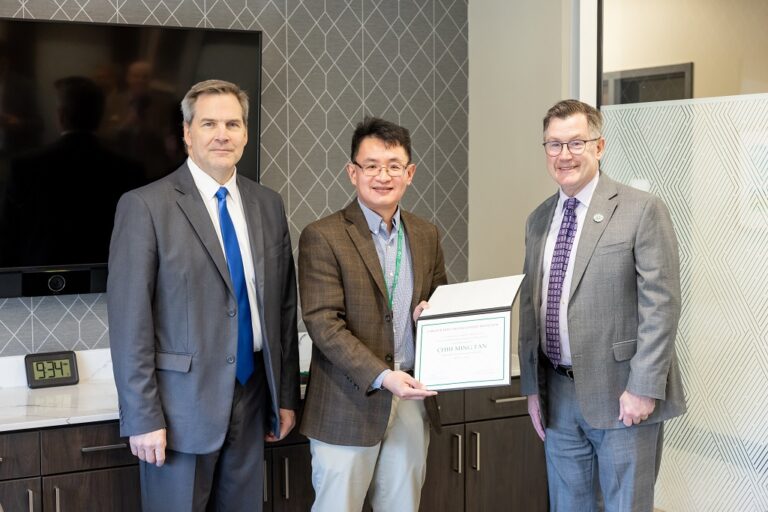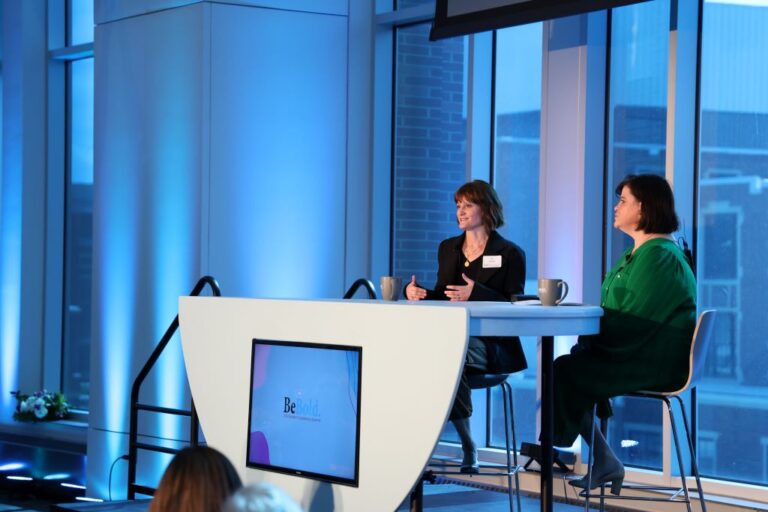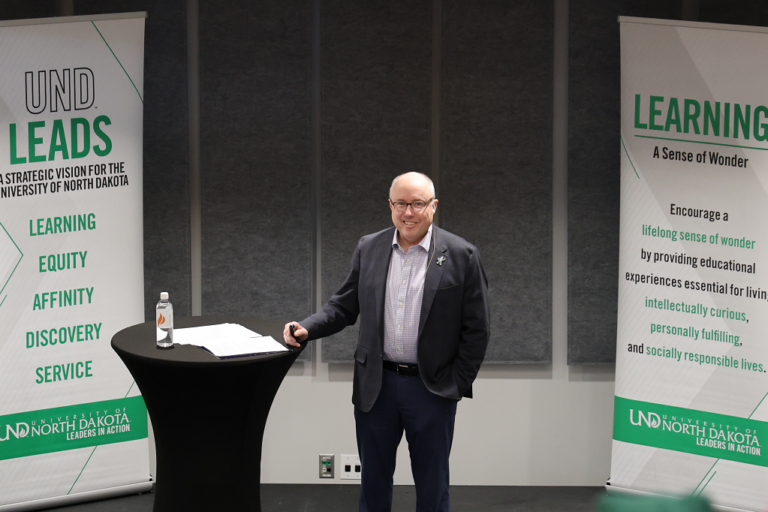UND incubator helps drone start-up soar toward commercialization
Tau Drones uses UAS and artificial intelligence to map heat loss in buildings

Tau Drones, an energy analytics company, was accepted to and has started the National Science Foundation’s National I-Corps Program.
Tau Drones is a local company in Grand Forks, N.D., owned by Matt Dunlevy. The company evaluates commercial and residential buildings for energy efficiency. “We are trying to automate the energy auditing process as well as make sense of why energy is lost from certain buildings,” said Karthik Balaji, Tau Drones’ product development lead.
Once Tau Drones understands why and where energy is lost, the company can provide the data to users along with recommendations to prevent further heat loss.
This project is an example of how university researchers and students can examine pathways to commercialize their innovation beyond the lab and transform it into a potential product, service, or business.
UAS, powered by AI
The story behind Tau Drones’ work begins at UND with Prakash Ranganathan, assistant professor of electrical engineering. Ranganathan developed a thermal imaging-based AI system in partnership with Dunlevy as part of the former ResearchND program.
Ranganathan commends his research team and credits their role in the ResearchND project, including several graduate students and postdoctoral fellows: Debanjan Sadhukhan, Niroop Sugunarai, Youness Arjoune and Sai Peri. Other collaborators include Michael Nord, assistant director of Energy and Continuous Improvement Services from UND Facilities & Management, and UND professors David Flynn and Gautham Krisnamoorthy.
The process has continued to evolve and now focuses on semi-automated energy audits.
Tau Drones combines Dunlevy’s UAS background with Ranganathan’s work on Artificial Intelligence and Data Analytics to understand the energy consumption profile of buildings. The company takes this combination of elements to scan buildings and sense heat loss.
The drone uses waypoints to regulate its flight patterns. Once the waypoints are put in by the drone operator, the building is scanned to identify where heat loss is occurring, and the data is used to determine recommendations and cost savings.
The information can then be given to building managers to help them make decisions to weatherize the building.

Assessing market viability
The NSF I-Corps Program helps university researchers and their partners with commercialization. The program features customer discovery interviews aimed at identifying product market fit and customer segments to determine potential market viability for university intellectual property.
The National I-Corps Program is backed by the National Science Foundation. NSF is developing and fostering a national innovation network to lead scientific research regarding the development of solutions to benefit society. Participants in the National I-Corps program (such as Tau Drones) get $50,000 for customer discovery activity, which usually consists of attending conferences and events to conduct hundreds of beneficiary interviews to better understand customer segments, target markets, and industry pain points.
“Our NSF I-Corps partnership has helped several faculty and students at UND get a better understanding of where their technology and ideas intersect with market demand,” said Amy Whitney, director of the UND Center for Innovation. “Tau Drones has shifted their business model as they learn more about their target market and how their technology alleviates customer pain points.”
Tau Drones was introduced to the NSF I-Corps Program by the Center for Innovation at UND. The Center collaborates with the Great Lakes Midwest I-Corps hub, which is managed by the University of Michigan.
The first step toward a National I-Corps program is acceptance into and successful completion of an I-Corps Hub regional program. Tau Drones completed the regional program in June and was recommended to apply for the National I-Corps Program. The company applied, interviewed, and prepared its team.
That team consists of Dunlevy, Whitney, Product Development Lead Balaji and Michael Mann, associate dean for research at the UND College of Engineering & Mines.
Regional I-Corps programs take place throughout the year. If other UND faculty or students are interested in participating, they’re welcome to contact the Center for Innovation.


